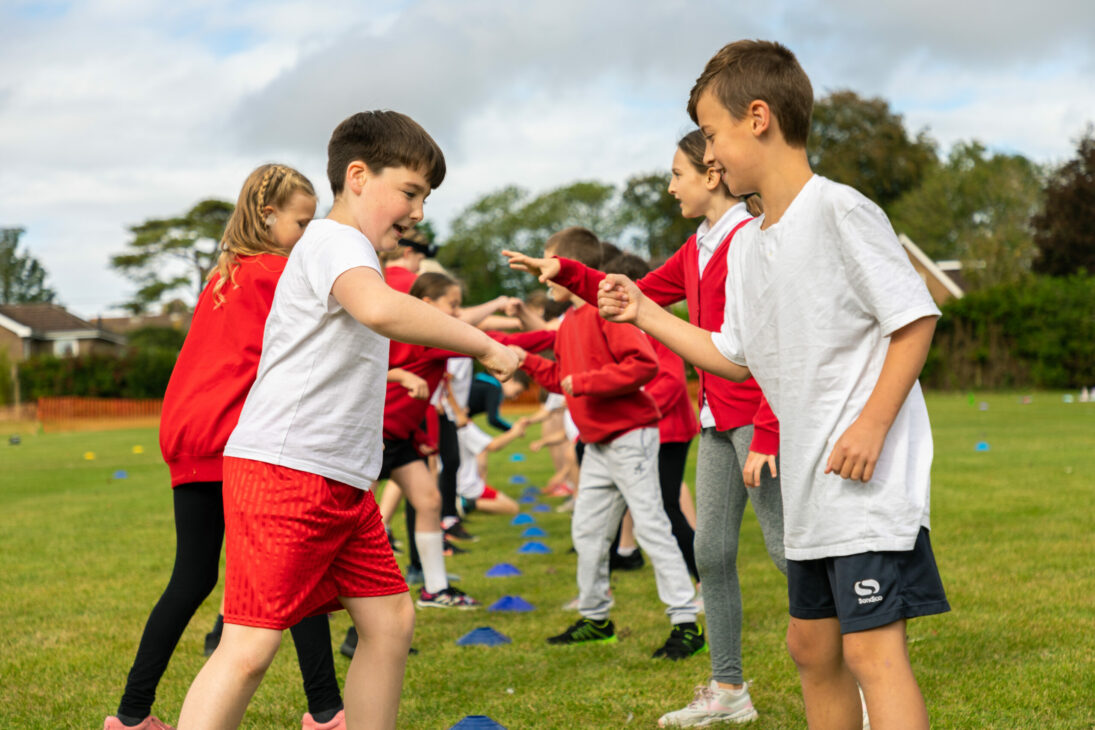If you’re a coach who’s relatively new to the industry, heading into a new school or you feel like your delivery hours are leaving you short on time to plan high quality PE lessons, then this blog is for you.
We’ve narrowed down our 5 top tips to help you prioritise what it’s important and where to start when planning a top-class PE lesson:
- Subject knowledge
A good knowledge of the PE curriculum and individual sports is probably the most important priority to really get started in a school. Understanding the journey within the scope of work and also having a good understanding of fundamental movement skills will also put you in good stead.
If you know this, then your lesson will already be on its way!
A good understanding of cross curricular links can also be an added bonus. Are the children your teaching learning about Sea creatures? Can they move like the creatures their learning about? In Maths, are they learning new shapes? Can they create those shapes? Simple boosters that also show you’re embedded in the wider school.
- Knowledge of school
Knowledge of the school is essential in building trust and valuable relationships with your teachers and the decision makers, but it’s also very helpful in delivering a high-quality PE lesson.
Do you understand the needs of the school? Is the school an academy, state or independent? What is the school’s mission or values? Having this knowledge can help you tailor each lesson to help embed yourself into the schools’ overall goals. If you know the curriculum overview and the scope of work, you can plan PE lessons that suit.
What kind of class sizes or forms does the school have? If it’s dual entry or 2 years per class as you can sometimes find in smaller schools, do you need to factor in larger group sizes? If so, your lessons will need to consider the activities that can keep all the children active, engaged and safe.
Fall back on previous experience, have you taught in a similar school before? Has someone else in your team? Don’t be afraid to ask, it can save a lot of time and anxiety. No question is insignificant.
Included in your school knowledge should also be the equipment and space the school are able to provide. Knowing the answers to these questions before you go into a new school are essential and leave room for unnecessary surprises.
- Knowledge of children
What makes Ben different to Ava? What level are the children at within the school? By getting to know the children, and talking to teachers, you can quickly build a picture around who might need what to stay engaged and feel confident in lessons.
Are there any children with additional needs within the class or are there children who may perform at a higher level that will need to be accounted and differentiated for? Are any of them going through a growth spurt or is there a big difference between the early and late born in the year group? All questions to consider when planning your activity and how you deliver the lesson. Sometimes just coming prepared with a few different ways of explaining an activity can help you to avoid thinking on your feet and ensure a confident delivery.
- Timings
An important part to any high-quality PE lesson is time keeping and management. If you factor in changing, intervention and ball rolling time, you know how the lesson will need to be structured to ensure the children are given an opportunity to meet the lesson goals.
Understanding if it’s a 1 off session or part of a six-week block can help you to deliver the content you need in a manageable time frame for both you and the children, ensuring everyone’s needs are met.
- Authenticity
It’s important the lesson has objectives and learning takeaways but delivering a lesson that’s fun and engaging is the most important to ensure students want to take part and try again next time. Many children don’t like PE as they’re not ‘sporty’ or they don’t think they’re good enough at sports. By removing this barrier and making the lesson about fun, and about progression of skill will allow learners to gain knowledge and practice different elements without feeling pressured or inadequate.
Above all else, keep it simple, be yourself and enjoy it. If you’re having fun and feeling passionate…the children will too!
Did you find this helpful? If so, make sure you follow our social channels to stay updated with the latest industry news and top tips!
